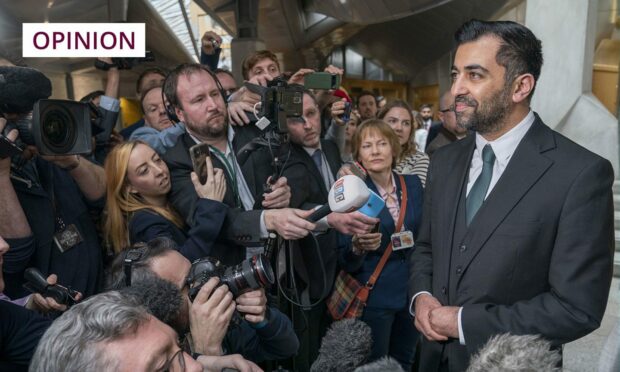Words don’t come easy to me, someone once sang in a slightly high-pitched voice.
When Robert Fitoussi, also known as FR David, sang that memorable bit of schmaltziness in 1982, he wouldn’t have known that it would become the inevitable soundtrack when politicians or celebrities stumble or slur their way through high-profile appearances.

His song, Words, isn’t soppy enough for when film stars peck at each other’s lips, but Monsieur Fitoussi will make enough royalties from the bloopers shows. So, for him, words are important and Words is important.
Now, law firms are telling staff to stop using certain words in correspondence. That some still use “Dear Sir or Madam” in letters and emails instead of using proper names or even the names of the department they work for has left me bewildered.
Let’s stamp our ‘Sir or Madam’
“Dear Sir or Madam” is horrible, stuffy and impersonal – in a rude way. Dear Sir or Sirs when you don’t even know who will read it is sexist and discriminatory. Forget tradition, it’s just wrong. I’ve done it, too, and I am sorry. Never again.
Stuffed shirts in government departments used it all the time, whether they knew your name or not. I remember their excuse in the 1980s was that they were working off templates and didn’t have the time to enter individuals’ names. Then computers came along.
What do you write if you want to avoid ‘Dear Sir’ or ‘Dear Madam’, but don’t know them personally?
With mail-merging word processors, they’ve no excuse now, but organisations still use unnecessarily gendered language. It’s bad enough when you have a name that is of ambiguous gender. Just ask any Chris or Pat or even Sandie. Yep, Mrs X has put up with it, and the sloppy misspellings thereof, for yonks.
I should protest more when I see my name at the top of a letter and it still begins with a sexually-ambivalent form of address. It’s is a symptom of lack of care. I like addressing people personally, but what do you write if you want to avoid “Dear Sir” or “Dear Madam”, but don’t know them personally? That’s easy.
A colourful letter writer
Decades ago, I worked in a Stornoway furniture shop. You remember Grant’s? Gosh, how old are you?
My former colleagues will recall how I’d be engaged to write colourful letters to the Inland Revenue, as it was, pleading on their behalf for rebates. When I say pleading, the letters were whimpers that the unfortunate taxpayer would be down to their last cow “whose name is Buttercup” if no rebate was made. Silly sentiment often worked.
Putting them off guard was the trick. I’d start my letters affectionately with “My Dear Friends”. That piqued tax officials’ interest. Not used to being anyone’s buddies, they read it. Boom.
My success rate climbed to the point that about 80% of letters I sent got some money back. When I joined the RAF, I carried on the letter-writing, but the Revenue was onto me. They replied to one airman that whoever was writing his letters should quit it.
The initially-friendly tone and reference to poorly-fed animals was to be taken as a marker, so it would end up stamped “No Rebate Due”. Sorry, Buttercup.
Will Guto survive?
Words are important because we can use them for fun or to deride. Guto Harri, the new comms dude at Number 10, claims the PM sang I Will Survive to him. Now, where and why would Boris learn those lyrics?
Just think of those words: “Go on now, go, walk out the door. Just turn around now, ’cause you’re not welcome anymore. Weren’t you the one who tried to break me with goodbye? You think I’d crumble? You think I’d lay down and die?”
I wonder. Was this song learned for the alleged party after Dominic Cummings left? That must have been some shindig, right enough.
If Guto – who, it is claimed, has already referred to his boss as “not a complete clown” – is not careful, those same words could be sung again for him.
The order in which you say words is also crucial. A man from Shawbost ran into the Criterion Bar in Stornoway. He told the barman: “Give me 10 nips of the best malt whisky – quick.”
So, the barman set them up and the man knocked them all back in seconds. “Hey, man. Why are you drinking so fast?” Asked the barman. He got the sad reply: “You’d drink fast, too, if you had what I’ve got.”
Fearing the ultimate medical diagnosis, the barman said: “Oh no. What have you got?”
The West Sider replied: “Fifty pence.”
Iain Maciver is a former broadcaster and news reporter from the Outer Hebrides








